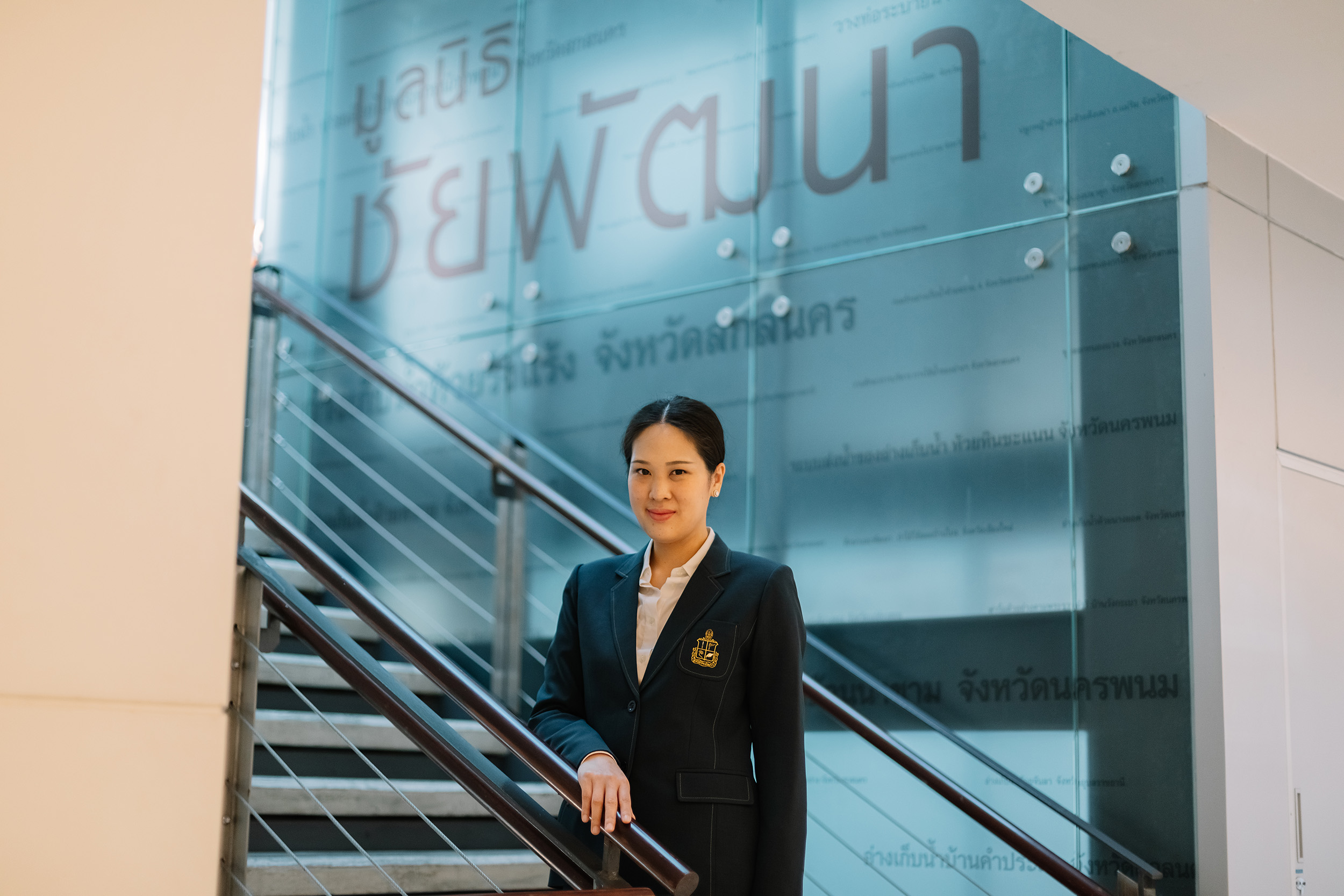In Thailand, farmers are recognized as the country’s backbone. But the Puey Ungphakorn Institute for Economic Researchreports that 40 percent of Thai farmers live below the poverty line. Their economic and social development was a strong focus of the late King Bhumibol Adulyadej, who established the Chaipattana Foundation in 1988 to develop practical solutions to benefit his people. With this goal in mind, the foundation’s Highland Agriculture Research and Development Project is now collaborating with dtac for a 5G “Internet of Things” solution set to enhance the cultivation of the lucrative lingzhi mushrooms.
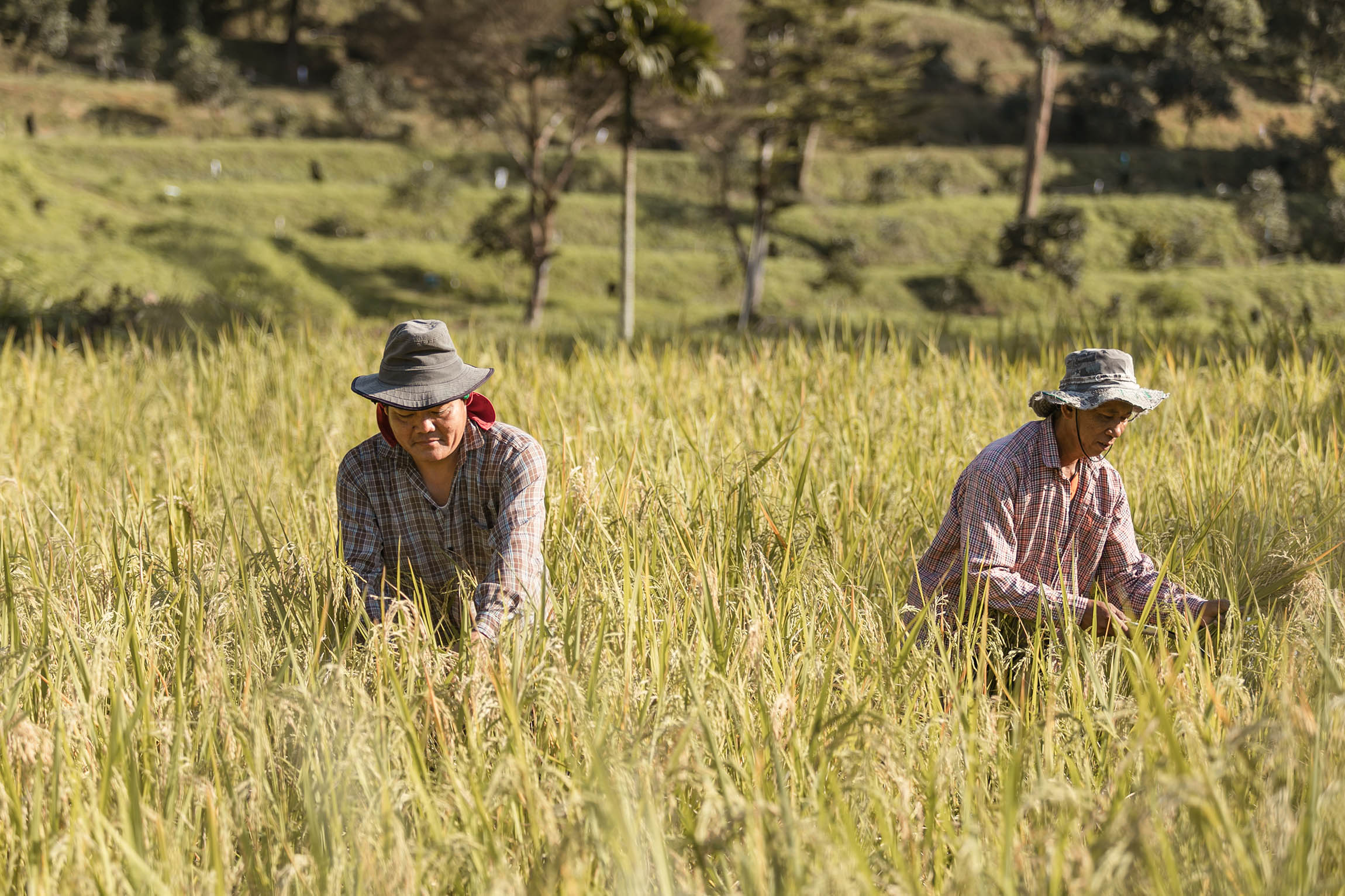
Agricultural Lab
Anutra Wannaviroj, director of the Highland Agriculture Research and Development Project, says HRH Princess Maha Chakri Siridhorn established the research center to develop agriculture in Thailand’s North. The Chinese government also provided investment in the form of products, machinery, personnel, plants, and technology transfers.
Spanning 578 rai (231 acres) of land in Pong Nam Ron, in Chiang Mai, the project aims to train farmers and agricultural experts, making it the “agricultural lab” of the North.
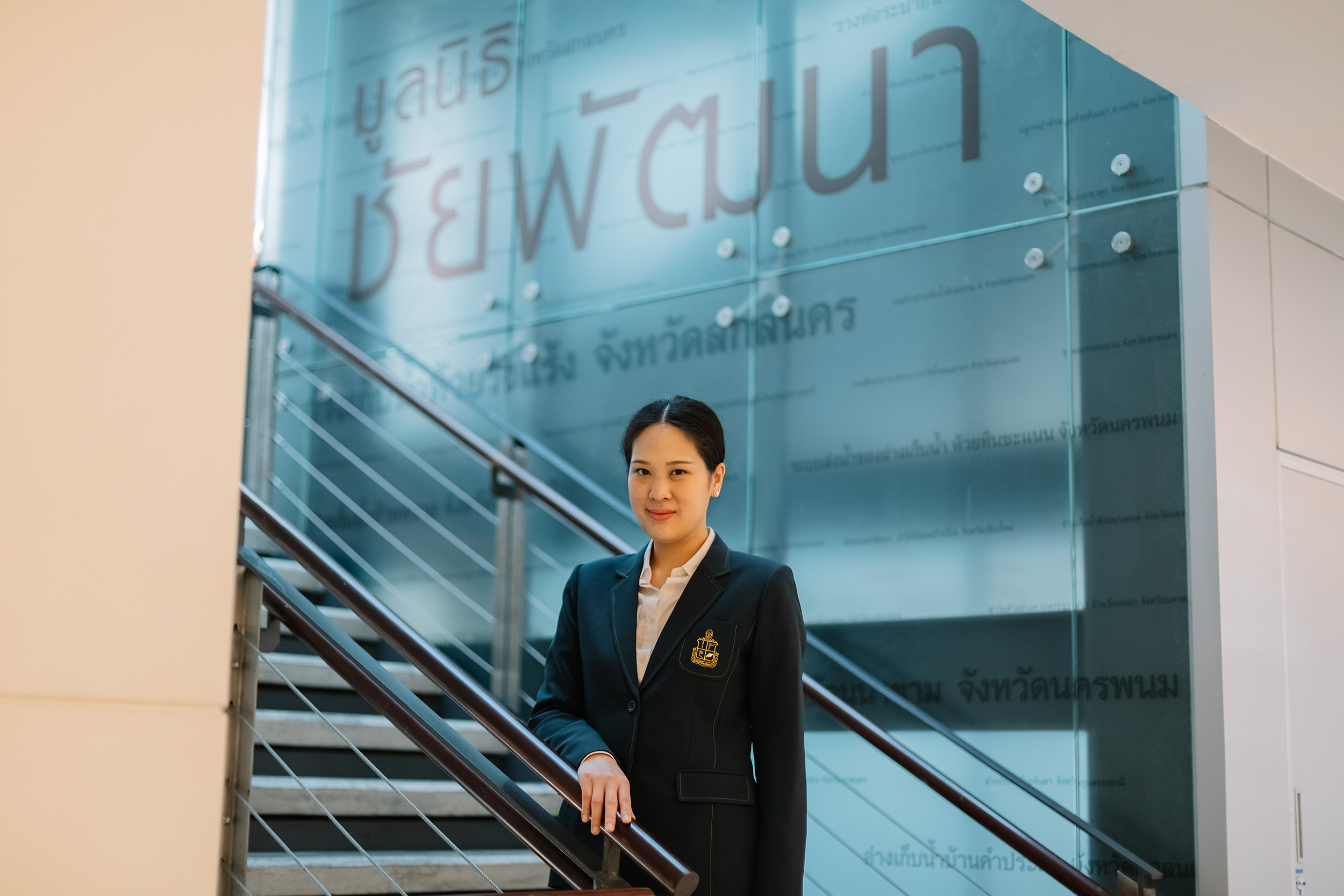
Ms. Anutra explains that the project’s operations are designed to match the geosocial context of the surrounding area. The project facilitates studies, experiments and the development of comprehensive organic-farming management programs. Under the project, organic produce is grown using agricultural waste to replace chemicals. Such reuse and recycling are done with the goal of achieving sustainable natural-resource conservation and environmental protection. Thanks to this approach, crops from the project are organic and are certified as having met the Ministry of Agriculture and Agricultural Cooperatives’ Good Agricultural Practice and Organic Thailand standards.
Lingzhi mushrooms receive special interest because their medicinal properties. However, Lingzhi mushroom are very sensitive to their environment. Any change in temperature, relative humidity, and lighting affects their growth and quality.
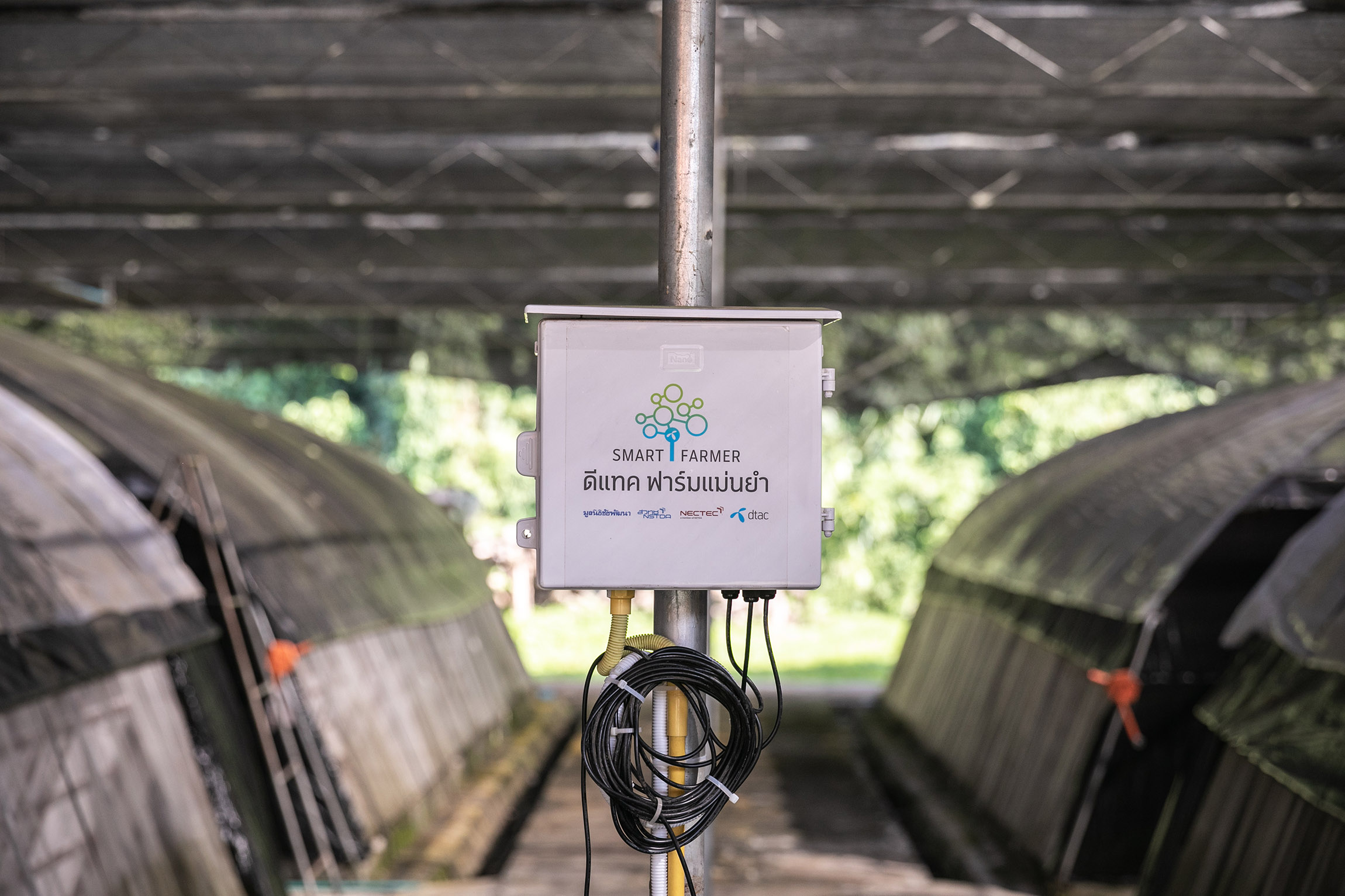
The 2nd Green Revolution
The Chaipattana Foundation is now working with dtac and the National Electronics and Computer Technology Center (NECTEC) about the use of communication technologies in farming. The “Smart Farm Research Project: Case Study of Lingzhi Mushroom” is the second phase of this project. The National Biobank of Thailand has also joined the project’s work panel.
“Today, weather conditions in Fang are highly volatile because of climate change, resulting in a negative impact on the growth of plants and farm output,” Ms. Anutra points out.
Each kilogram of the mushroom’s dried caps can fetch a four-digit figure (in Thai baht), and each kilogram of its spores can be sold for a five-digit sum thanks to their health benefits. Lingzhi mushroom contains four important substances: polysaccharides, triterpenoids, nucleotides, and germanium.
To date, Thailand has still had very limited knowledge of the factors affecting the cultivation of lingzhi. Ongoing research, however, promise to give greater understanding of these factors both in and out of season.
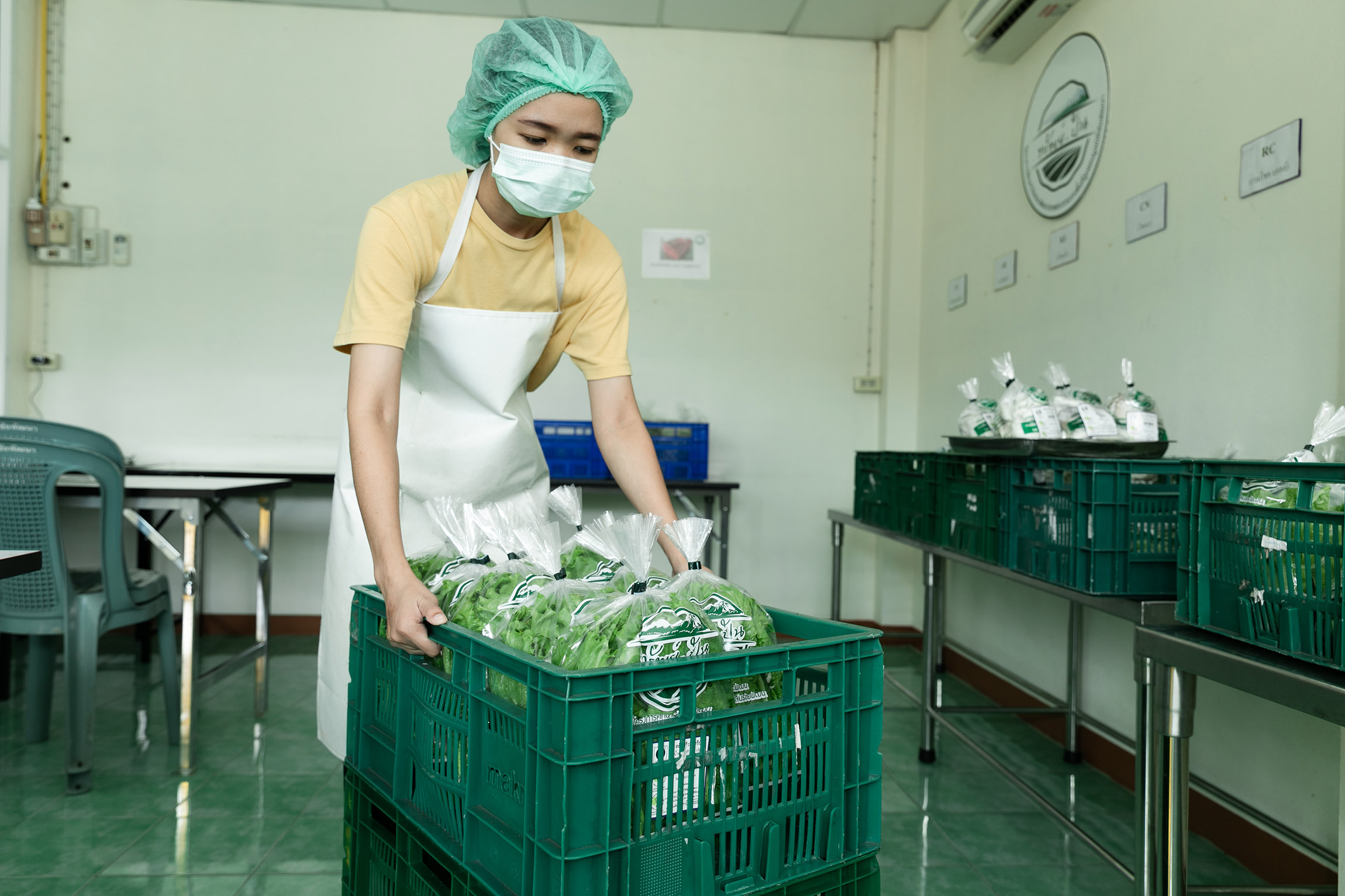
“Our research, when completed, will create a breakthrough in Thailand’s lingzhi mushroom cultivation. Results can be used to generate massive agricultural, nutritional and medical benefits,” Ms. Anutra said.
Ms. Anutra adds that agricultural development needs to embrace technology to manage cultivation, govern energy usage, and facilitate marketing. dtac, as a partner of the project, deployed 5G technology on 700 MHz frequency together with Internet of Things solutions (IoT) to unleash the power of farming.
High resolution cameras have been installed in the greenhouse to monitor the shape and color of mushrooms in each phase of their growth. Big data and machine learning can then be used to optimize the mushrooms’ growth throughout the year. In collaboration between the foundation and NECTEC, dtac’s technology can hence develop lingzhi mushrooms as a new economic booster in Northern Thailand.
Self-Resilience: Path of Sustainable Development
Ms. Anutra adds that in response to providing additional income streams for farmers, the project has created distribution channels for crops and related processed products in the Fang River Basin. Such sharing promises to support the enhancement of people’s living conditions on a sustainable basis. Moreover, it encourages farmers to avoid using chemicals, raising their quality of life and the environmental quality in an upstream zone, while delivering crops and good health to people living downstream.
“Rice is one of the project’s other products. Under the project, differentiated rice varieties are presented to farmers as alternatives. When they embrace such alternatives, they offer something different from what are widely available in the market. Their rice products are thus in demand,” she says.
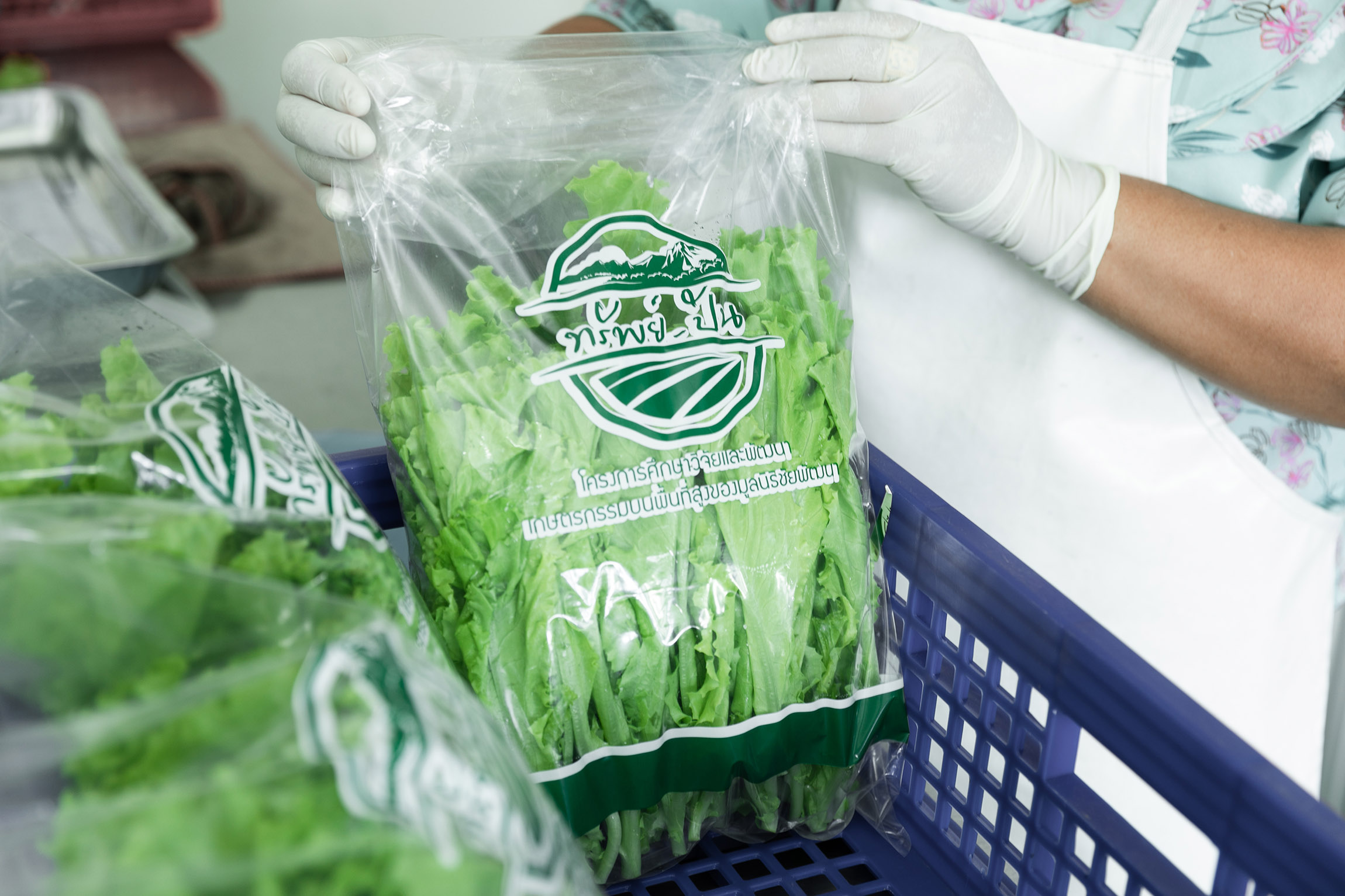
The project, moreover, has just revamped a rice mill that meets all local regulations. Farmers can work as both farmers and operators of the rice mill when they join the project and receive income from the two activities. In the future, the project may set up community enterprises for stronger farmers and stronger communities – the ultimate goals of the Chaipattana Foundation.
“The Chaipattana Foundation’s Highland Agriculture Research and Development Project is like a sandbox for farmers. They come here to play, experiment and learn. After they gain enough confidence, they can take off on their own. Such approach completely resonates with the Chaipattana Foundation’s development goals,” Ms. Anutra told dtacblog.

Filling Development Gap
In its bid to fill development gaps, the Chaipattana Foundation focuses on what the government has not yet done. Its emphasis is on promotion, support and coordination to facilitate existing projects so that they can keep pace with a fast-changing world.
“The foundation must act fast to help farmers keep up with technology. Participation from civil society and the private sector is therefore critical to further speed up the success of our development missions. Their participation is also in line with the Chaipattana Foundation’s philosophy, which focuses on enhancing sustainable development,” Ms. Anutra adds.

